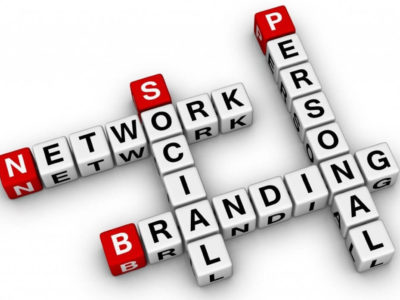It’s difficult to call “personal brand” a hot new phrase. For as long as there has been a job market, workers with individualized, unique skillsets have been given special privileges, access to limited leadership roles, more respect; in other words, the best positions. But the phrase does feel new, hot, and weighty on the tips of our young, eager, job–hungry tongues. It has a professional, capitalist, post-Great-Recession timbre that aligns it with our conception of the job market as a gladiatorial free-for-all.
It seems that, hyper-connected as we all are today, there are more venues than ever to advertise what is called a “personal brand”; and it’s not revolutionary to posit that the demand for specialized labor is on an exponential upswing. What’s really new about “personal brand” is the essentialness of having one.
Don’t take it solely from me. Glenn Llopis, successful entrepreneur, chairman of the Glenn Llopis Group, Founder of the Center for Hispanic Leadership, author of the ebook “Why a Personal Employee Brand will Save Your Career and Your Workplace," writes in a recent Forbes.com article, “Developing your personal brand is essential for the advancement of your career and development as a leader." He goes on to state, “If your teammates and/or colleagues don’t know what your personal brand is, the fault is yours and not theirs," and "having a personal brand is a leadership requirement."
Type in personal branding on Google and you’ll get 42 million links in half a second. Do that, then click on www.personalbrandingblog.com, the website of Dan Schwabel, international bestselling author of Me 2.0 (a Personal Branding Bible), whom The New York Times proclaims is a “Personal Branding Guru." On this site, you’ll find a number of well thought-out Personal Branding articles, including a hilarious and most likely semi-fantastical bashing of a Harvard Business School student. People who are out there in the "jobby" world, who have survived the employment carnage, have collected, sifted through, analyzed, and cut their teeth on the data that proves a Personal Brand matters. What doesn’t matter is if we the prospects buy into it, because employers assuredly do. The point is you need to have one.
There are problems with all this, however. A lot of this Personal Brand stuff focuses on the interview or even the cover letter, where a honed, concentrated awareness of specific skill and personality can be unpacked and conveyed, but it doesn’t seem to address the resume, which remains by nature, formulaic. Insane employment competition prevents prospective employees from getting jobs that have a prayer of displaying Personal Brand on a resume in the first place. As many of us know all too well, the buck of an application often stops at ther resume. This is true in the college application process as well. It is totally subjective and impersonal; so who’s to say we will even have a chance to present our Brand should we have one?
A bigger question is: with all these Personal Brand strategies circulating the interweb, how soon is it before these “new” branding strategies become overused and lose their novelty value? It’s already happened with social media Branding. As Llopis astutely points out in his article, “personal branding has become a ‘commoditized’ term that has lost its intention as people have irresponsibly used social media as a platform to build their personal brand and increase their relevancy”: irresponsibly, yes, and en masse. Lisa Quast, another Forbes.com Personal Brand specialist writes, “Developing a personal brand is similar to product branding," and the current strategies maintain that. But take a product like a car. Car commercials develop the product, but make people groan because they’re all the same, though they’re all the same because that enables them to solidify a brand.
Do you want to be a car commercial? Think about it.
1. When you’re researching Personal Branding, which you should do, really research it– there’s a lot of good information out there, but even more bad, thoughtless information.
2. Having a Personal Brand is not equal to hyperactivity on social media. That being said, the right activity paired with active effort absolutely will help you. Yes, that means you should stop talking/posting/tweeting about ragefests, or any other part of your crazy side that will not be conducive to building your brand.
3. Do some soul-searching, or soul diagramming, or have an interior conversation – whatever you want to call it – self-identity and self-knowledge are the lynchpins to branding success. If you’re not the introspective type, fine. Do something to explode your routine, or take your actions out of context by writing them down and ordering them in novel ways. Look to your hobbies for inspiration. Ask yourself what you love and use that information to your benefit.
4. No matter how hard it is to accept, rejections are largely impersonal. They’re not a condemnation of your character or your effectiveness as a human being. In other words, try not to look at you as you but rather from a business standpoint.
5. Get a ton of help; you’re going to need it. Be open to communicating with people, especially those whose job it is to help you. For example, any college career center is overflowing with good advice. You might even want to go to your parents! Oh yes, turns out they know you better than you sometimes. Plus, like it or not, they’ve been around the block with this job stuff.
http://aristolog.com/wp-content/uploads/Personal-Branding-1024×697.jpg



















